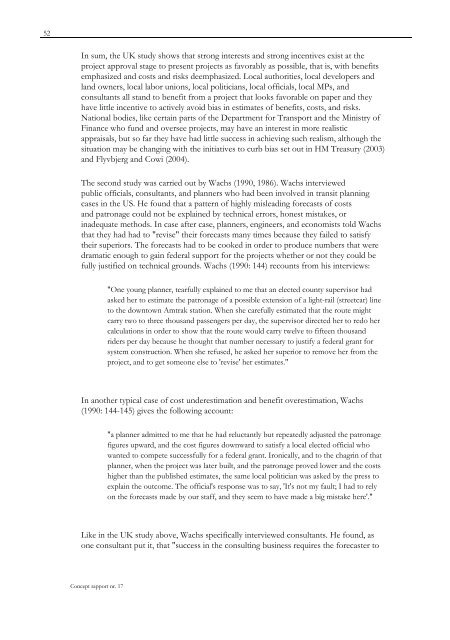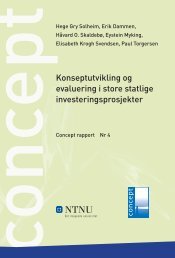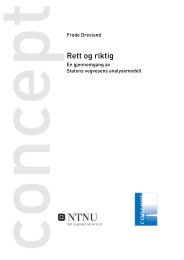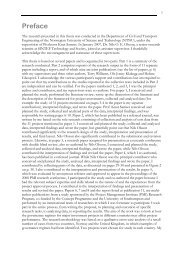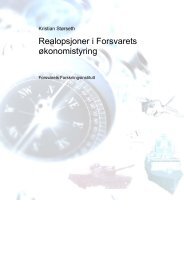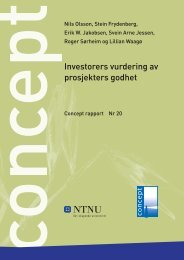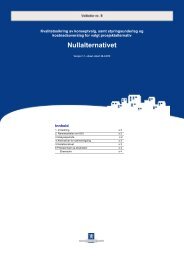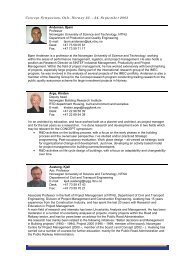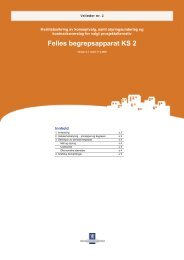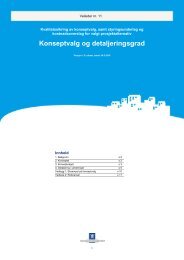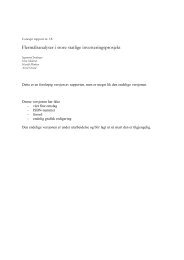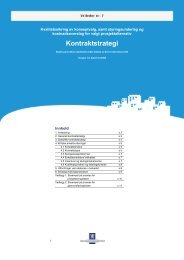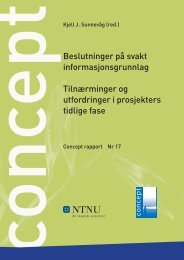How Optimism Bias and Strategic ... - Concept - NTNU
How Optimism Bias and Strategic ... - Concept - NTNU
How Optimism Bias and Strategic ... - Concept - NTNU
Create successful ePaper yourself
Turn your PDF publications into a flip-book with our unique Google optimized e-Paper software.
52<br />
In sum, the UK study shows that strong interests <strong>and</strong> strong incentives exist at the<br />
project approval stage to present projects as favorably as possible, that is, with benefits<br />
emphasized <strong>and</strong> costs <strong>and</strong> risks deemphasized. Local authorities, local developers <strong>and</strong><br />
l<strong>and</strong> owners, local labor unions, local politicians, local officials, local MPs, <strong>and</strong><br />
consultants all st<strong>and</strong> to benefit from a project that looks favorable on paper <strong>and</strong> they<br />
have little incentive to actively avoid bias in estimates of benefits, costs, <strong>and</strong> risks.<br />
National bodies, like certain parts of the Department for Transport <strong>and</strong> the Ministry of<br />
Finance who fund <strong>and</strong> oversee projects, may have an interest in more realistic<br />
appraisals, but so far they have had little success in achieving such realism, although the<br />
situation may be changing with the initiatives to curb bias set out in HM Treasury (2003)<br />
<strong>and</strong> Flyvbjerg <strong>and</strong> Cowi (2004).<br />
The second study was carried out by Wachs (1990, 1986). Wachs interviewed<br />
public officials, consultants, <strong>and</strong> planners who had been involved in transit planning<br />
cases in the US. He found that a pattern of highly misleading forecasts of costs<br />
<strong>and</strong> patronage could not be explained by technical errors, honest mistakes, or<br />
inadequate methods. In case after case, planners, engineers, <strong>and</strong> economists told Wachs<br />
that they had had to "revise" their forecasts many times because they failed to satisfy<br />
their superiors. The forecasts had to be cooked in order to produce numbers that were<br />
dramatic enough to gain federal support for the projects whether or not they could be<br />
fully justified on technical grounds. Wachs (1990: 144) recounts from his interviews:<br />
"One young planner, tearfully explained to me that an elected county supervisor had<br />
asked her to estimate the patronage of a possible extension of a light-rail (streetcar) line<br />
to the downtown Amtrak station. When she carefully estimated that the route might<br />
carry two to three thous<strong>and</strong> passengers per day, the supervisor directed her to redo her<br />
calculations in order to show that the route would carry twelve to fifteen thous<strong>and</strong><br />
riders per day because he thought that number necessary to justify a federal grant for<br />
system construction. When she refused, he asked her superior to remove her from the<br />
project, <strong>and</strong> to get someone else to 'revise' her estimates."<br />
In another typical case of cost underestimation <strong>and</strong> benefit overestimation, Wachs<br />
(1990: 144-145) gives the following account:<br />
"a planner admitted to me that he had reluctantly but repeatedly adjusted the patronage<br />
figures upward, <strong>and</strong> the cost figures downward to satisfy a local elected official who<br />
wanted to compete successfully for a federal grant. Ironically, <strong>and</strong> to the chagrin of that<br />
planner, when the project was later built, <strong>and</strong> the patronage proved lower <strong>and</strong> the costs<br />
higher than the published estimates, the same local politician was asked by the press to<br />
explain the outcome. The official's response was to say, 'It's not my fault; I had to rely<br />
on the forecasts made by our staff, <strong>and</strong> they seem to have made a big mistake here'."<br />
Like in the UK study above, Wachs specifically interviewed consultants. He found, as<br />
one consultant put it, that "success in the consulting business requires the forecaster to<br />
<strong>Concept</strong> rapport nr. 17


